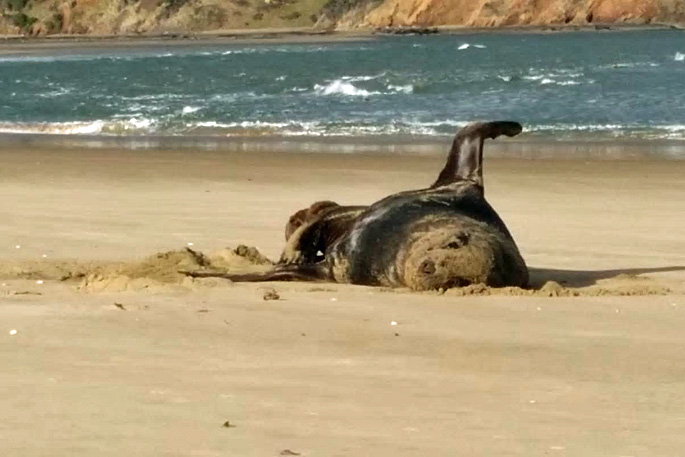Frozen animal poo may hold the answers these Kiwi scientists are looking for.
For more than a year a frozen slab of leopard seal poo, which is scientifically known as 'scat', has sat in a Niwa freezer.
The poo is about the size of two bread rolls and although it's small, it's mighty. Scientists hope to learn what Antarctic leopard seals eat, as well as learning about their health and how long they may have been in New Zealand waters.
The scientific research is so valuable that Niwa marine biologist Dr Krista Hupman and the team at LeopardSeals.org have a network of volunteers from around the country who collect the seal poo and send it in for analysis.
Krista's work also includes analysing leopard seal sightings to determine if they are becoming more common in New Zealand waters.
Two volunteers who take part in the not-so-glamourous work are Jodie Warren and Melanie Magnan.
After defrosting a poo sample, they "basically have to sift it," explains Jodie.
"You put it under the cold tap, get all the gross stuff off, smoosh it around a bit and separate the bones, feathers, seaweed and other stuff."
In November 2017, a vet who was out checking on the health of a skinny leopard seal at Invercargill's Oreti Beach, picked up a scat sample, and sent it to Dr Hupman.
That sample was placed into the freezer and three weeks later was defrosted by Melanie.
During the defrosting process, Melanie discovered something large and hard concealed inside the poo. It was a USB stick and Melanie wasn't impressed.
"It is very worrying that these amazing Antarctic animals have plastic like this inside them," she says.
The memory stick was in reasonably good condition considering where it had come from. After it was left to dry out for a few weeks, the volunteers discovered the USB still worked.
Ironically, on it were photos of sea lions at Porpoise Bay in the Catlins and a video of a mum and baby sea lion frolicking in the shallows.
The only clue to who might have taken them is the nose of a blue kayak seen in the video.
If you're the owner of the memory stick and you're wanting it back, beware - it comes with a price. The researchers would like some more seal scat, please.
"The more we can find out about these creatures, the more we can ensure they are looked after."
-Stuff.co.nz/Georgia Forrester



0 comments
Leave a Comment
You must be logged in to make a comment.